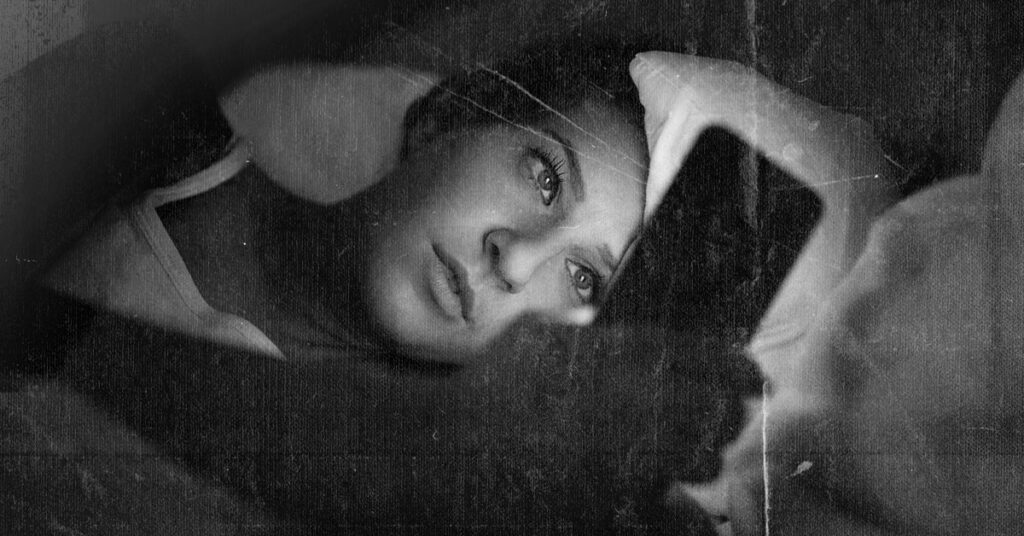Are you in a relationship with your phone? If you lie on your bed at 9 PM and scroll through your phone till midnight – there’s a major problem here.
Several current studies show that the advancement of social networks has contributed to the increase in mental illnesses such as depression and anxiety, and even large companies are already aware of this. Facebook, for example, has removed the display of the number of Likes on Instagram for people to focus only on content instead of numbers.
It’s not surprising that the COVID-19 pandemic has accelerated the negative consequences of social media addiction. There are already studies that link social media’s frequent use during the pandemic with a higher prevalence of mental health problems.
As with most addictions, knowledge, and awareness of your problems’ nature is a prerequisite to solving them.
Think about your reasons for checking social media:
- Are you trying to avoid or escape from something using social media?
- How does being on social media make you feel?
- Are you comparing yourself to others or judging others using social media?
- Do you feel inadequate doing this?
- Do you rely on social media validation for your self-esteem?
- Do you only feel good about yourself if a photo of you generates a lot of likes/comments?
Fortunately, it is possible to get rid of addiction to social media, partially or completely, as long as some steps are taken with enough dedication.
We are talking about doomscrolling. The concept may be new to some people, but it most certainly is a trending subject.
Doomscrolling: When you are surrounded by bad news, and you continue to dig deep to find out all the details.
We see depressing news everywhere, from the rise in COVID-19 cases to mass killings and rapes.
While it’s good to be aware of the happenings, doomscrolling can take up a lot of time and affect your mind negatively. How to stop doomscrolling? Keep reading!
Disable notifications
If you prevent notifications from getting in the way of your routine, it’s easier to focus on what you’re doing. These little balloons are a constant warning that something is happening in the online world, and it makes us feel that we are missing something. The advantage of turning them off is that when we enter social media again, the experience will be more exciting and rewarding because we will find more news; second, we’ll better control our time (and what apps take from it).
Be aware of what you want.
Many times, you enter social media websites looking for something but end up distracted by something else, go from one profile to another, and after half an hour realize that you no longer remember what you were interested in finding. Being aware of your needs can help you focus on them and not get sucked into the endless timeline of useless, time-consuming information.
Look for a hobby
Just as it happens when someone stops smoking or eating to satisfy emotions, when we stop doomscrolling, we may end up not knowing what to do with our free time. Looking for a specific activity that pleases us will help keep our attention on it and give our brains a healthier satisfaction so that we will not miss social media. Do you like writing? Start journaling your daily activities. Instead of watching cooking videos, make a delicious dish on your own!
Instead of spending hours scrolling through Instagram photos of other people, why not go out and take some pictures yourself? Focus on being more present, with practices such as yoga and mindfulness.
Set boundaries
Establishing a set time to be on social media can be a test of willpower, but it is worth it to get rid of bad habits, such as the constant need to look at the phone. The first piece of advice is to set limits for yourself. Define times of the day when it is ‘forbidden’ to check your phone or scroll social media timelines.
Set timers for apps
Another good idea is to set timers for each app on your phone: choose a daily limit depending on your need to disconnect. Each time you open a social app, the timer starts ticking. When you reach the limit, be strong. Research shows that the happiest people are those who spend less than an hour a day connected. If you need a longer digital rest, some experts say that it needs to last at least three days for it to be effective.
Here’s something you can do: stop using social media after 8 PM. Whether it’s Instagram, Facebook, Twitter, or even internet surfing on the little phone – STOP IT!

